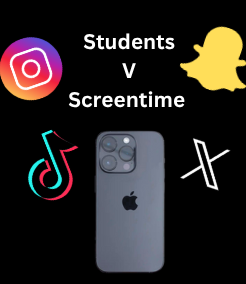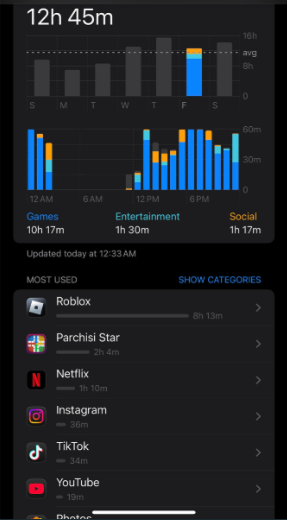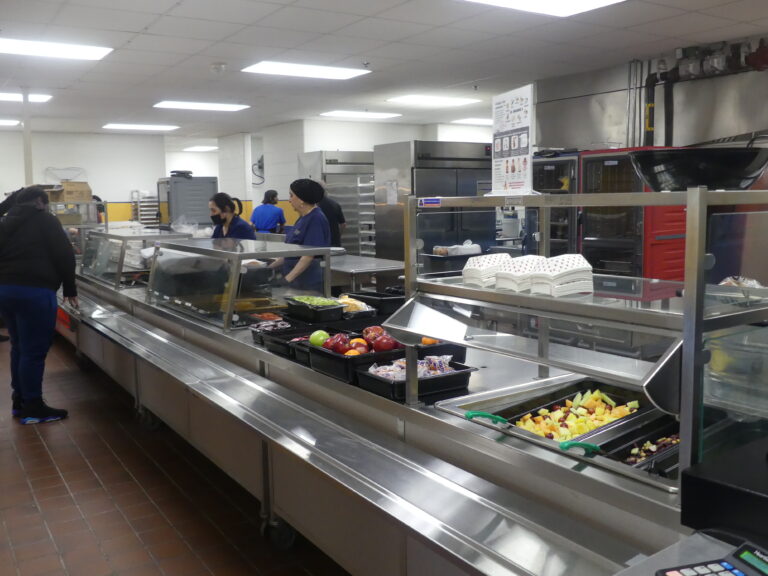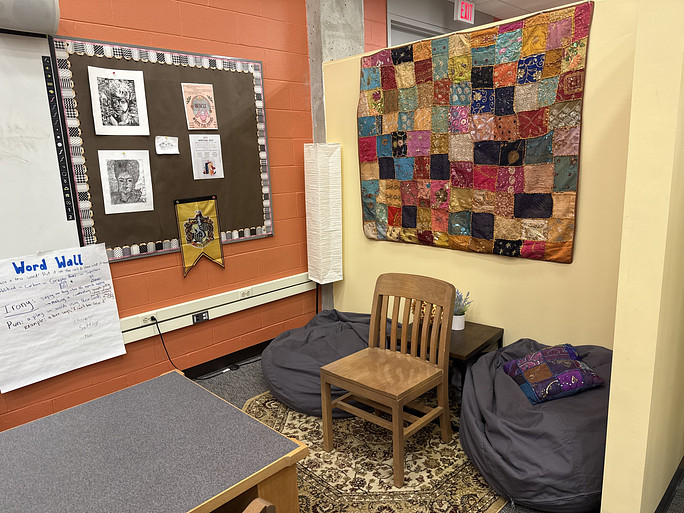
Today, students are constantly connected to technology, whether it is through their phones, computers, iPads, or Apple watches. While screens can be helpful for learning, excessive screen time can impact how well students focus and engage in class.
Screens are also essential to schoolwork, with students using devices for assignments and learning. Most teachers require some form of technology, as most students either use Chromebooks or have their laptops; if not, some permit using phones for class work.
Students in the United States spend over seven hours a day on screens, including time spent on social media, playing games, or watching videos. Due to this large amount of screen time, most teenagers today have developed short attention spans. The more students switch between apps, games, and videos, the harder it becomes to maintain attention in class for extended periods. “I feel like the more I watch TikTok, the more my attention span reduces,” sophomore Juan Caballero commented.

Social media significantly contributes to screen time, as many teens rely on it while using their phones. Scrolling through social media can be addictive and quickly consume time and attention. “Social media and games impact everything. The only time I am on my phone is when I am on TikTok,” sophomore Aaliyah Ferreira shared.
“I think I do work better with music because when I don’t listen to music, I’ll be on my phone instead,” Ferreira explained. Some students believe they can multitask, finishing an assignment while texting, checking social media, or listening to music. “I need background noise when I’m doing homework. I find myself working better with music or a show on the side,” junior Jaell Dumas added.
Frequently switching between tasks, especially online, can make it harder for students to fully engage with their schoolwork. This leads to teachers confiscating phones during class because if a student receives a text or hears a notification, it can distract them and influence other students to do the same. “If I feel a notification, I’ll pull my phone out, and as I keep typing, the time keeps passing when I stop paying attention to class,” Caballero stated.
High screen times can also be attributed to nighttime usage: individuals often feel the need to have their phones nearby while sleeping or even fall asleep with their phones on, whether because of a notification sound, a video, or even accidentally replaying a short clip like TikTok. “I feel like my screen time also impacts my sleep schedule because once I get on TikTok and start scrolling, I just want to keep watching the next video,” Dumas added.
Not only does high screen time affect students’ attention in class, but it also disrupts their sleep schedules, particularly on school nights. Studies recommend that people avoid sleeping with screens in the same room, especially on their beds.
“I usually sleep around seven hours a night, which is crazy to think that I sleep the same amount of hours as my screen time,” Dumas concluded.



